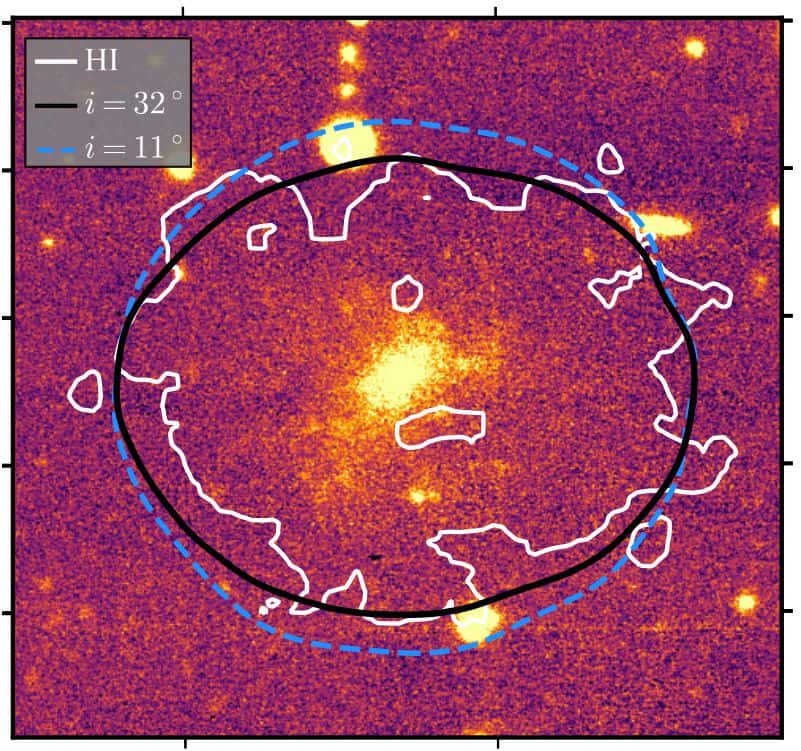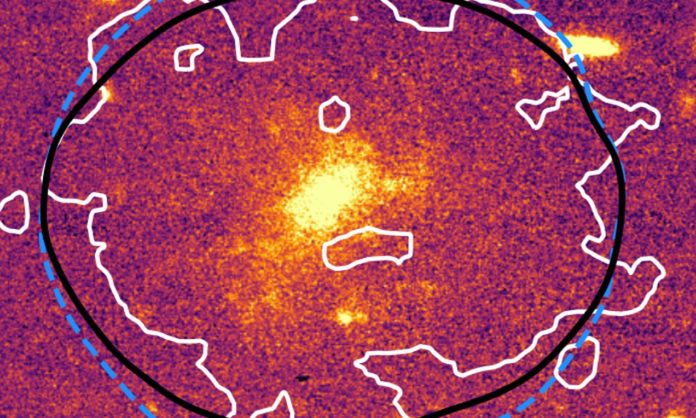Dark matter, one of the strangest things in the universe, just got darker.
The galaxy, called AGC 114905, is about 250 million light-years away from Earth and is about the same size as the Milky Way. It’s called AGC 114905. This galaxy, on the other hand, has a thousand times fewer stars than our home galaxy.
Such small galaxies must be held together by dark matter, the mysterious invisible stuff that makes up about 85% of all matter in the universe.
But when astronomers looked at AGC 114905 with the Very Large Array in New Mexico, they found that this galaxy has none at all.
The team didn’t pick AGC 114905 at random.
Previous observations suggested that this galaxy, along with five others, may be extremely deficient in dark matter. However, the data were so contrary to the theory that Pavel Mancera Pia and his colleagues decided to measure again.
Despite 40 hours of observations with one of the world’s most powerful radio telescopes, the researchers discovered no dark matter.
“This is, of course, what we thought and hoped for because it confirms our previous measurements,” said the researcher.


“But now the problem remains that the theory predicts that there must be dark matter in AGC 114905, but our observations say there isn’t. In fact, the difference between theory and observation is only getting bigger.”
AGC 114905 is not the first galaxy discovered to be devoid of dark matter by scientists. In 2018, a team led by Yale University astronomer Pieter van Dokkum discovered that NGC 1052-DF2, located 60 million light-years from Earth, appears to be devoid of dark matter. However, the methodology and measures utilized in Mancera Pia’s newest study are more robust, the scientists noted in a new statement.
The scientists believe that another, more massive nearby galaxy may have drained their galaxy of its dark matter. The remarkable thing is that no galaxy in the vicinity of AGC 114905 appears to be capable of such a feat.
Meanwhile, the scientists are looking into a second ultra-diffuse dwarf galaxy from their original group of six. If they uncover no evidence of dark matter in that galaxy as well, it will strengthen the case for dark matter-poor galaxies, the scientists stated in a statement.
Source: the Royal Astronomical Society
Image Credit: Javier Román & Pavel Mancera Piña
You were reading: This distant galaxy doesn’t need Dark Matter or stars
